Writing Worksheets Activities With Answers for Ages 4-9
8 filtered results
-
From - To
Discover engaging writing worksheets designed for children ages 4-9 that stimulate creativity and enhance writing skills! Our collection includes diverse activities tailored to different skill levels, ensuring enjoyable learning experiences. Each worksheet comes with clear instructions and an answer key for easy reference, helping parents and teachers assess progress effectively. From tracing letters and forming sentences to creative story prompts, these activities promote literacy while sparking imagination. Ideal for homeschooling, classroom use, or extra practice at home, our writing worksheets encourage children to express their thoughts confidently and develop a love for writing. Explore our collection today and ignite your child's writing journey!
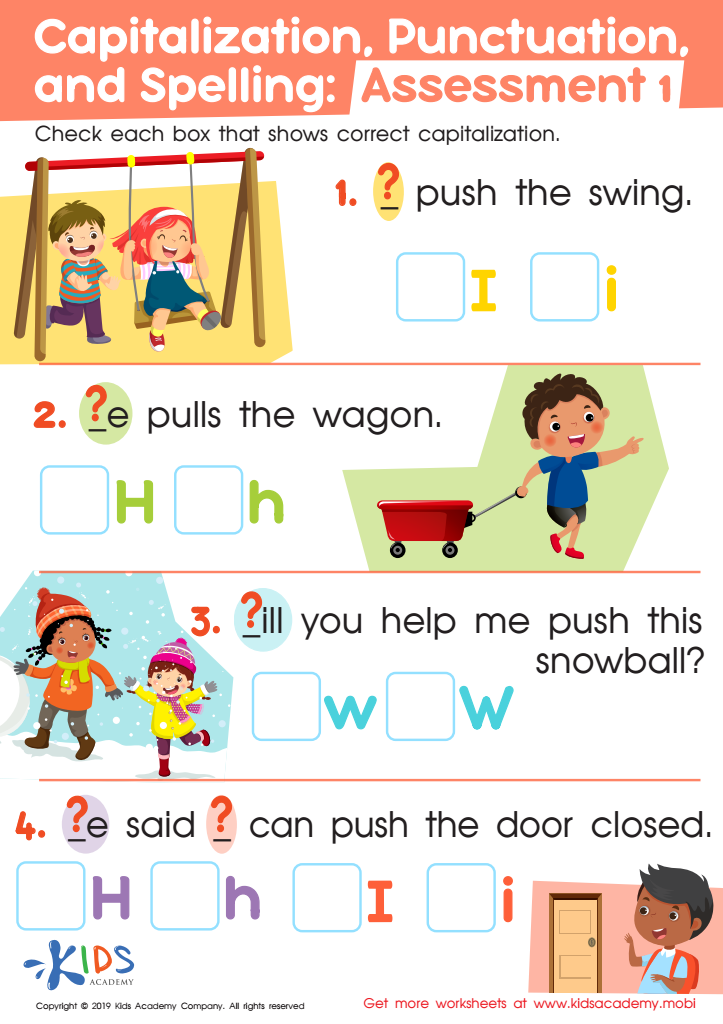

Capitalization. Punctuation. Spelling: Assessment 1 Worksheet
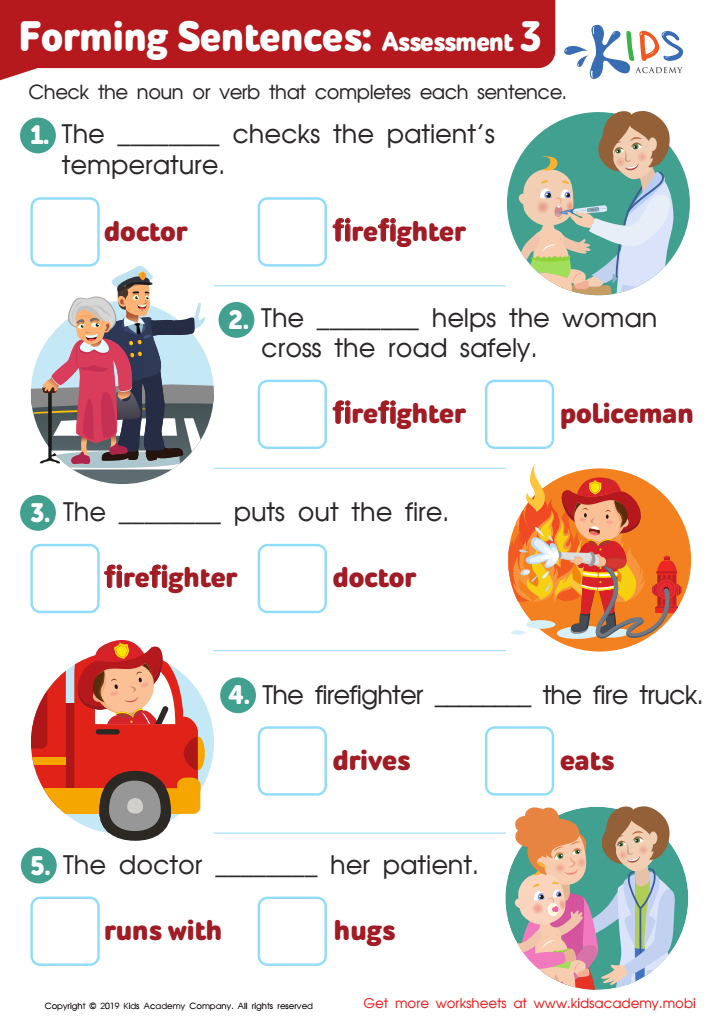

Forming Sentences: Assessment 3 Worksheet
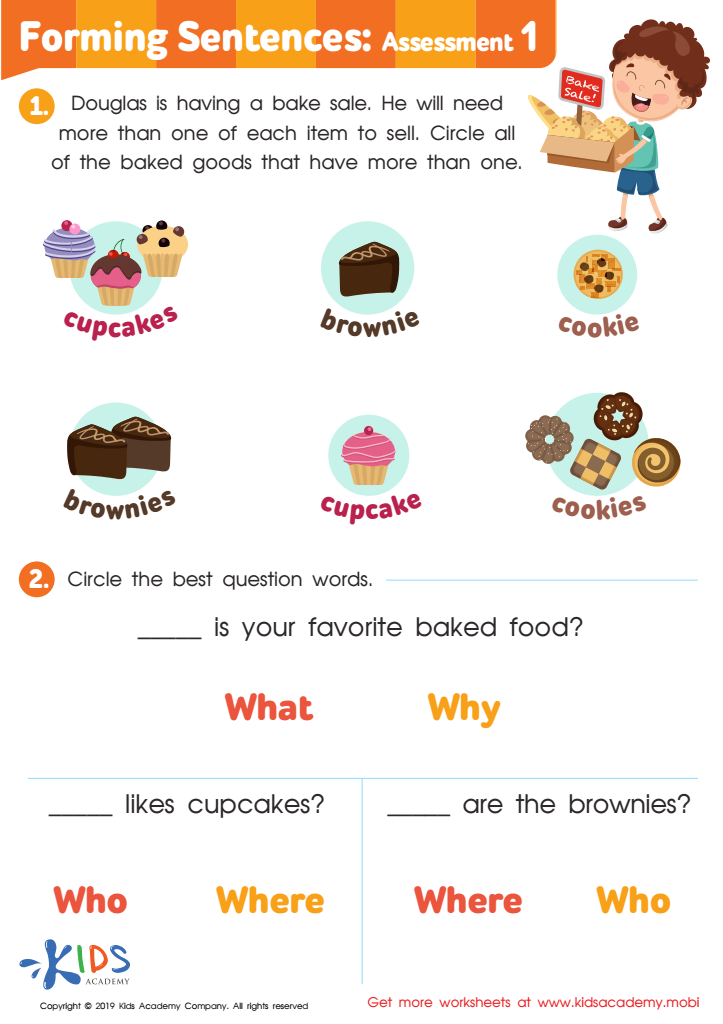

Forming Sentences: Assessment 1 Worksheet
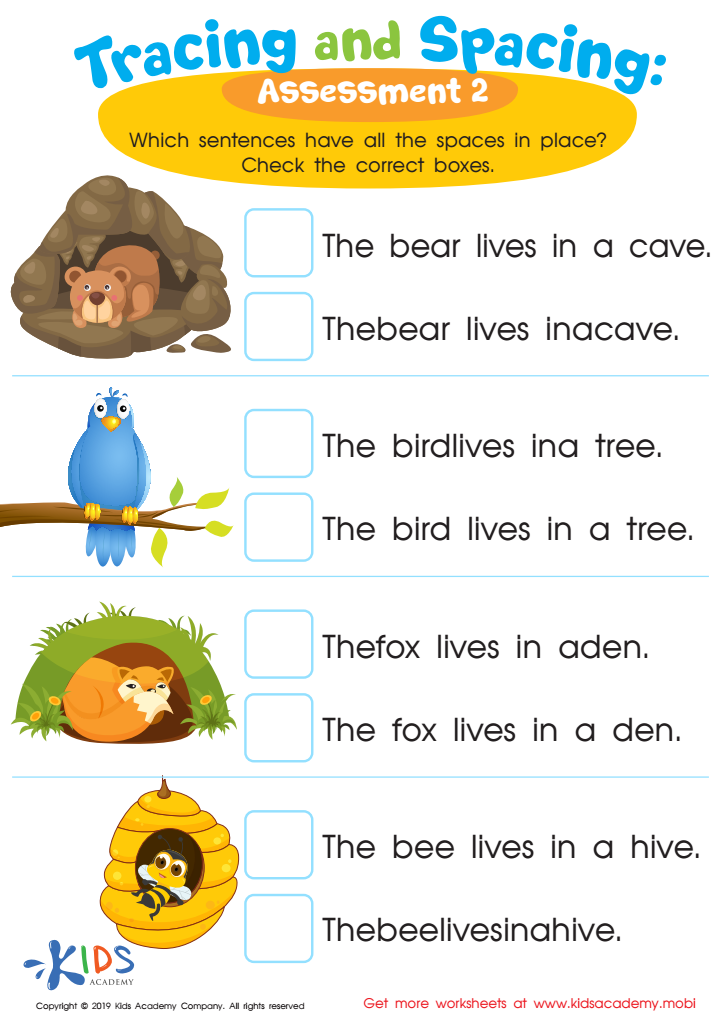

Tracing and Spacing: Assessment 2 Worksheet
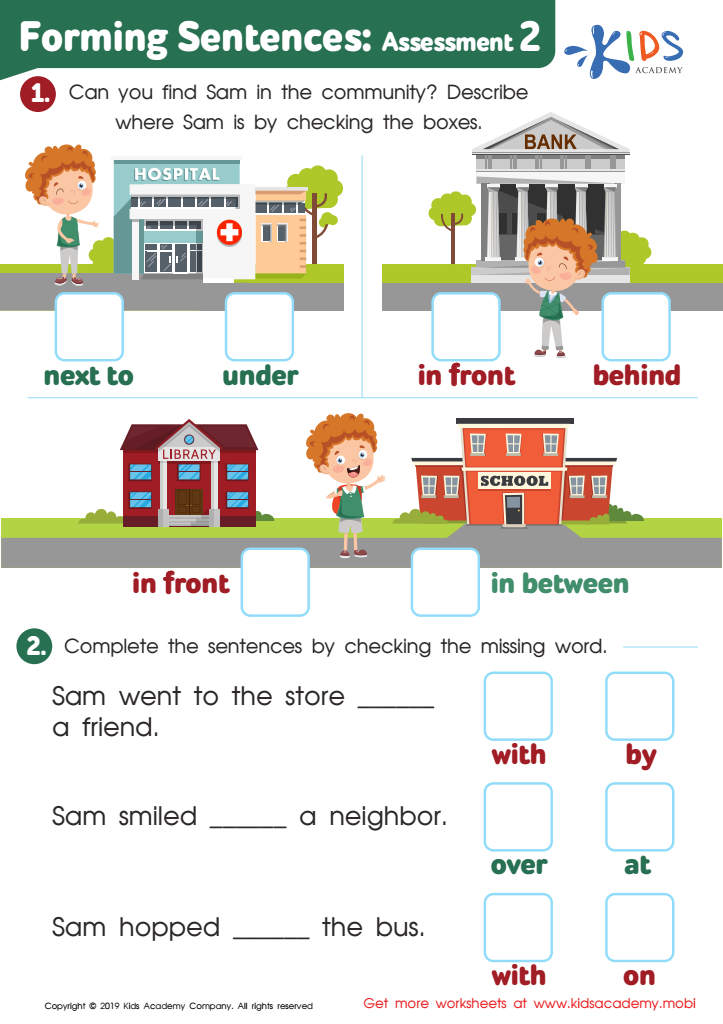

Forming Sentences: Assessment 2 Worksheet
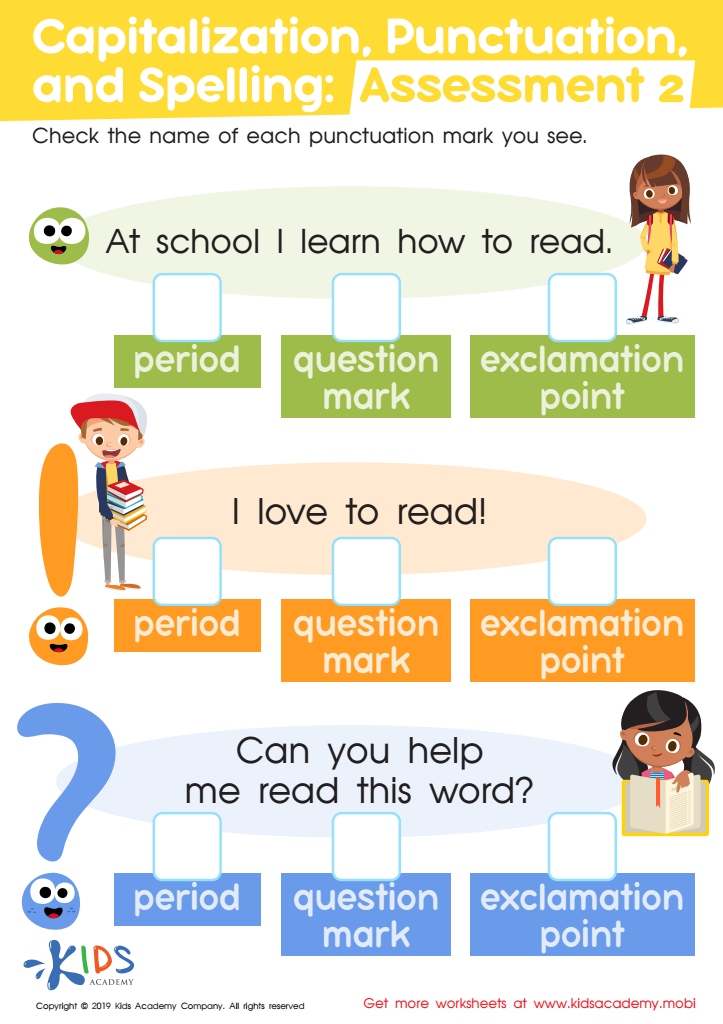

Capitalization. Punctuation. Spelling: Assessment 2 Worksheet
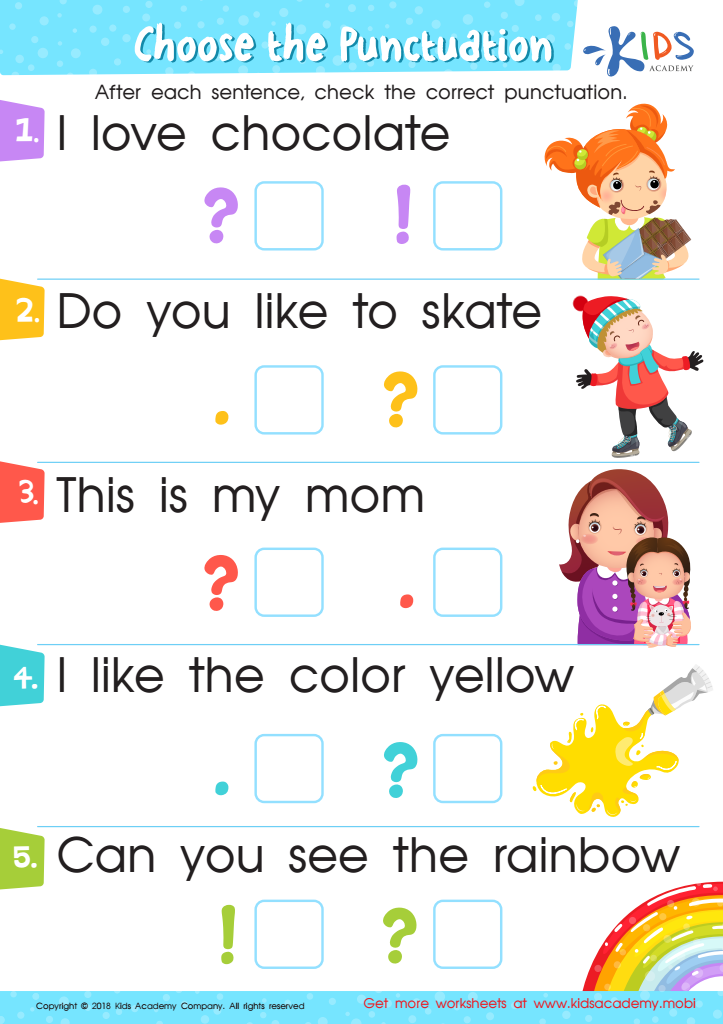

Choose the Punctuation: Assessment Worksheet
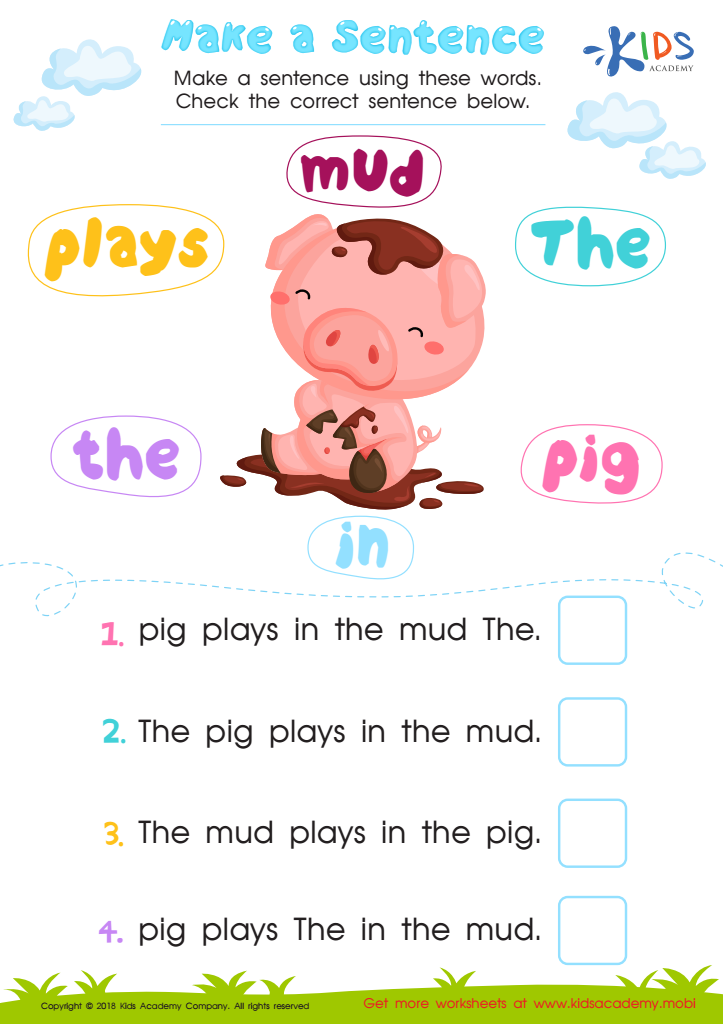

Assessment: Make a Sentence Worksheet
Writing activities designed for children aged 4-9 are crucial for several reasons, making them a priority for both parents and teachers. Firstly, early writing experiences foster essential literacy skills. At this age, children are developing their understanding of letters, sounds, and words, forming the foundations for reading and writing. Engaging in writing activities helps strengthen these skills, in turn enhancing their overall language development.
Secondly, writing is a means of self-expression and creativity. Through structured writing activities, children learn to organize their thoughts, articulate their ideas, and communicate effectively. This boosts their confidence and encourages them to share their unique perspectives.
Additionally, writing activities often promote critical thinking and problem-solving. Children are tasked with planning, revising, and editing, which cultivates perseverance and attention to detail. For parents and teachers, having activities that include answers is beneficial as it allows for guided learning, ensuring that children receive constructive feedback and correct guidance.
Finally, early writing activities can be incredibly engaging and fun, making the learning process enjoyable. By prioritizing these activities, adults are actively participating in their children’s educational journey, paving the way for lifelong learning and love for writing.

 Assign to My Students
Assign to My Students





.jpg)










